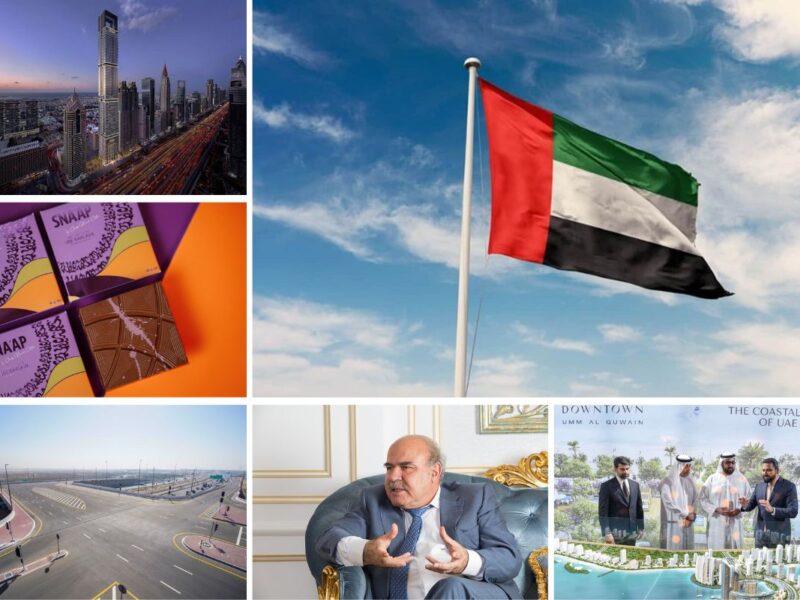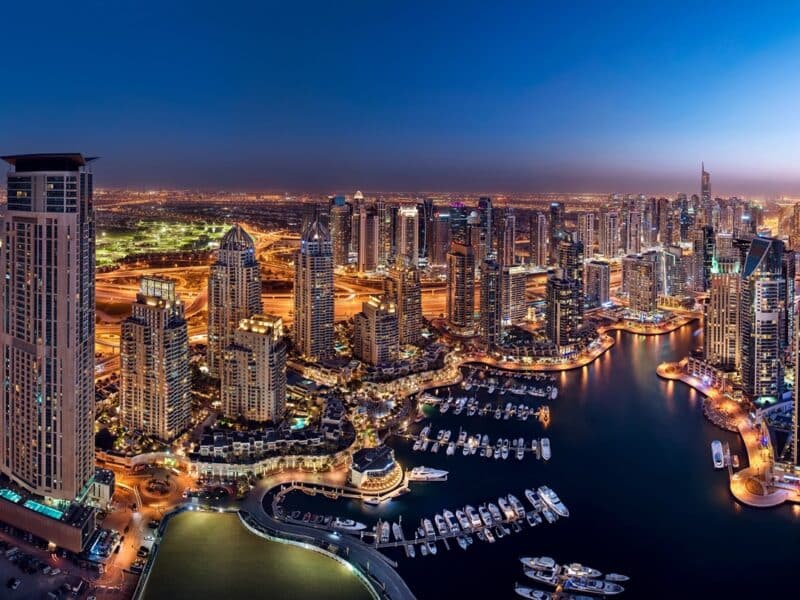A causeway that will bridge the 300 km gap between the capitals of Qatar and the UAE will be built, according to an agreement reached between the two states. Doha and Abu Dhabi have agreed to set up a joint venture firm that will begin feasibility studies on the ambitious project to bridge the open sea between the two nations.
The agreement to build the causeway was reached during the end-December visit to the Qatari capital by the UAE president and ruler of Abu Dhabi, His Highness Sheikh Khalifa bin Zayed Al Nahyan. A distance of some 300 kilometres, as the crow flies, separates the two Gulf cities. Since both the capitals are located on the coast, the length of the causeway is likely to be more or less the same.
Presently, those travelling by road between Doha and the United Arab Emirates have to go via a land route that takes them across parts of the Kingdom of Saudi Arabia. The proposed causeway will do away with the formalities of having to enter the neighbouring kingdom and shorten the distance it presently takes to travel between the two capitals.The result will be a raft of construction orders for a bridge that is likely to be the longest in the world. The Gulf is a relatively shallow body of water, making the construction of a causeway perfectly feasible.
The proposal to build the bridge was first revealed by Abdul Rahman bin Hamad Al Attiya, Gulf Cooperation Council Secretary General, at the end of the recent GCC Summit in Doha. The subject came up during a discussion about the proposed causeway between Qatar and Bahrain.
Danish firm, Cowi Consult has finalised a technical study for the proposed US $2 billion 40 kilometre bridge that will link the Gulf states of Bahrain and Qatar. Sheikh Mohammed bin Mubarak Al Khalifa, Bahraini deputy premier and foreign minister, explained that the implementation of the bridge between Qatar and Bahrain will begin soon. He announced that the necessary studies and the constructional plans for this “important and vital venture” have been now completed.
The UAE and Qatar have agreed to set up a joint venture company to manage and oversee the execution of the bridge between their two countries, according to a joint communiqué issued at the end of a visit by the UAE president to Doha.
“In a fraternal climate, the two sides held official talks in Doha, during which they discussed means of bolstering ties of fraternal co-operation, especially the activation of the work of the UAE-Qatar Higher Joint Cooperation Committee,” said the communiqué carried by Emirates News Agency.
“In this respect, an agreement was reached on setting up a joint company to oversee the implementation and running of the [proposed] causeway due to be established between the two countries in order to further boost co-operation and to serve the interests and welfare of the two brotherly people,” the statement pointed out.
Details of the new joint venture firm, such as the capital base, its name or the equity ownership structure, have not yet been revealed. It is, however, expected to be formed shortly and is to be tasked with carrying out the technical and feasibility studies required to execute the massive project.
If the cost of the Bahrain-Qatar bridge is anything to go by, the proposed Qatar-UAE causeway could easily cost over US $10 billion.
Ties between Qatar and the United Arab Emirates have been growing in strength in recent weeks. Qatar, which sits on one of the world’s largest reserves of natural gas, has entered into a multi-billion dollar agreement with the UAE Offsets Group firm, Dolphin Energy Limited, to supply natural gas via an underwater pipeline to the UAE and Oman.
Works on the project have started with contracts worth more than AED 1.93 billion already awarded. Since the Doha announcement, talks have been continuing at various levels between the UAE and Qatar.








